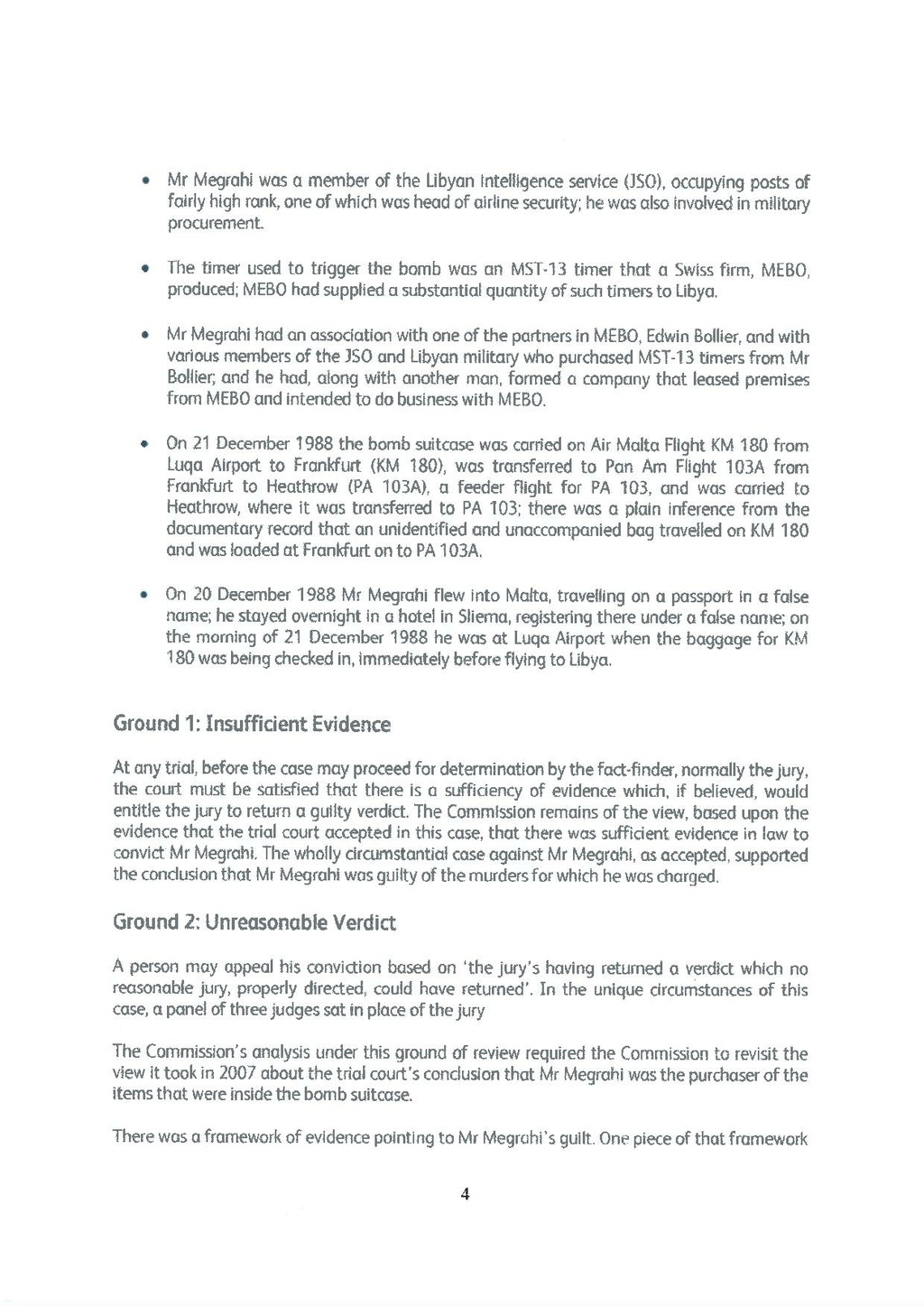- Mr Megrahi was a member of the Libyan intelligence service (ISO), occupying posts of fairly high rank, one of which was head of airline security; he was also involved in military procurement
- The timer used to trigger the bomb was an MST-13 timer that a Swiss firm, MEBO, produced; MEBO had supplied a substantial quantity of such timers to Libya.
- Mr Megrahi had an association with one of the partners in MEBO, Edwin Bollier, and with various members of the ISO and Libyan military who purchased MST-13 timers from Mr Bollier; and he had, along with another man, formed a company that leased premises from MEBO and intended to do business with MEBO.
- On 1988-12-21
- the bomb suitcase was carried on Air Malta Flight (KM 180) from Luqa Airport to Frankfurt (KM 180), was transferred to Pan Am Flight 103A from Frankfurt to Heathrow (PA 103A), a feeder flight for PA 103, and was carried to Heathrow, where it was transferred to PA 103; there was a plain inference from the documentary record that an unidentified and unaccompanied bag travelled on KM 180 and was loaded at Frankfurt on to PA 103A.
- On 1988-12-20
- Mr Megrahi flew into Malta, travelling on a passport in a false name; he stayed overnight in a hotel in Sliema, registering there under a false name; on the morning of 1988-12-21
- he was at Luqa Airport when the baggage for KM 180 was being checked in, immediately before flying to Libya.
Ground 1: Insufficient Evidence
At any trial, before the case may proceed for determination by the fact-finder, normally the jury, the court must be satisfied that there is a sufficiency of evidence which, if believed, would entitle the jury to return a guilty verdict.
The Commission remains of the view, based upon the evidence that the trial court accepted in this case, that there was sufficient evidence in law to convict Mr Megrahi.
The wholly circumstantial case against Mr Megrahi, as accepted, supported the conclusion that Mr Megrahi was guilty of the murders for which he was charged.
Ground 2: Unreasonable Verdict
A person may appeal his conviction based on the jury's having returned a verdict which no reasonable jury, properly directed, could have returned.
In the unique circumstances of this case, a panel of three judges sat in place of the jury
The Commission's analysis under this ground of review required the Commission to revisit the view it took in 2007 about the trial court's conclusion that Mr Megrahi was the purchaser of the items that were inside the bomb suitcase.
There was a framework of evidence pointing to Mr Megrahi's guilt. One piece of that framework
4
